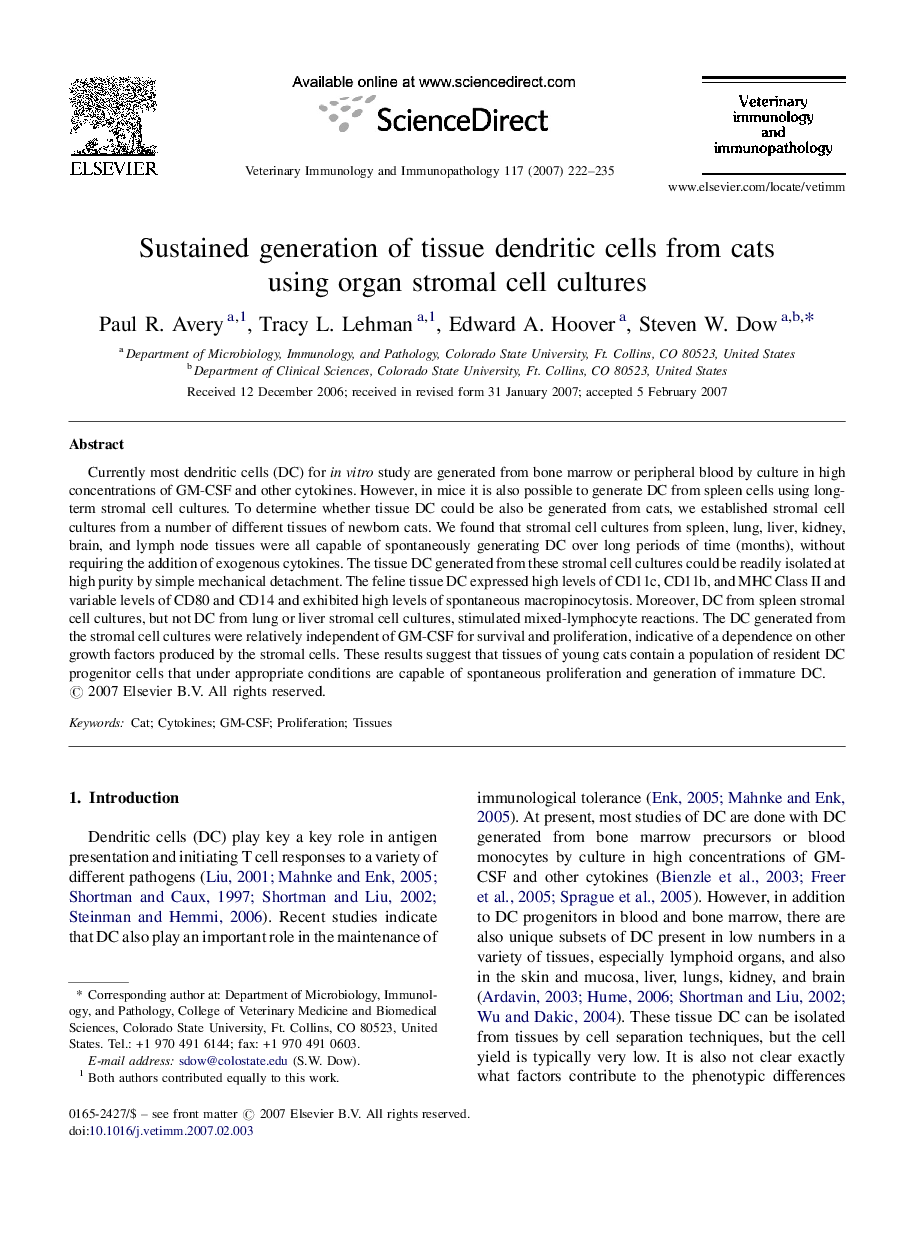| Article ID | Journal | Published Year | Pages | File Type |
|---|---|---|---|---|
| 2463464 | Veterinary Immunology and Immunopathology | 2007 | 14 Pages |
Currently most dendritic cells (DC) for in vitro study are generated from bone marrow or peripheral blood by culture in high concentrations of GM-CSF and other cytokines. However, in mice it is also possible to generate DC from spleen cells using long-term stromal cell cultures. To determine whether tissue DC could be also be generated from cats, we established stromal cell cultures from a number of different tissues of newborn cats. We found that stromal cell cultures from spleen, lung, liver, kidney, brain, and lymph node tissues were all capable of spontaneously generating DC over long periods of time (months), without requiring the addition of exogenous cytokines. The tissue DC generated from these stromal cell cultures could be readily isolated at high purity by simple mechanical detachment. The feline tissue DC expressed high levels of CD11c, CD11b, and MHC Class II and variable levels of CD80 and CD14 and exhibited high levels of spontaneous macropinocytosis. Moreover, DC from spleen stromal cell cultures, but not DC from lung or liver stromal cell cultures, stimulated mixed-lymphocyte reactions. The DC generated from the stromal cell cultures were relatively independent of GM-CSF for survival and proliferation, indicative of a dependence on other growth factors produced by the stromal cells. These results suggest that tissues of young cats contain a population of resident DC progenitor cells that under appropriate conditions are capable of spontaneous proliferation and generation of immature DC.
